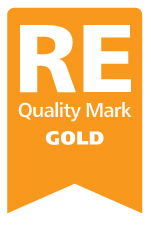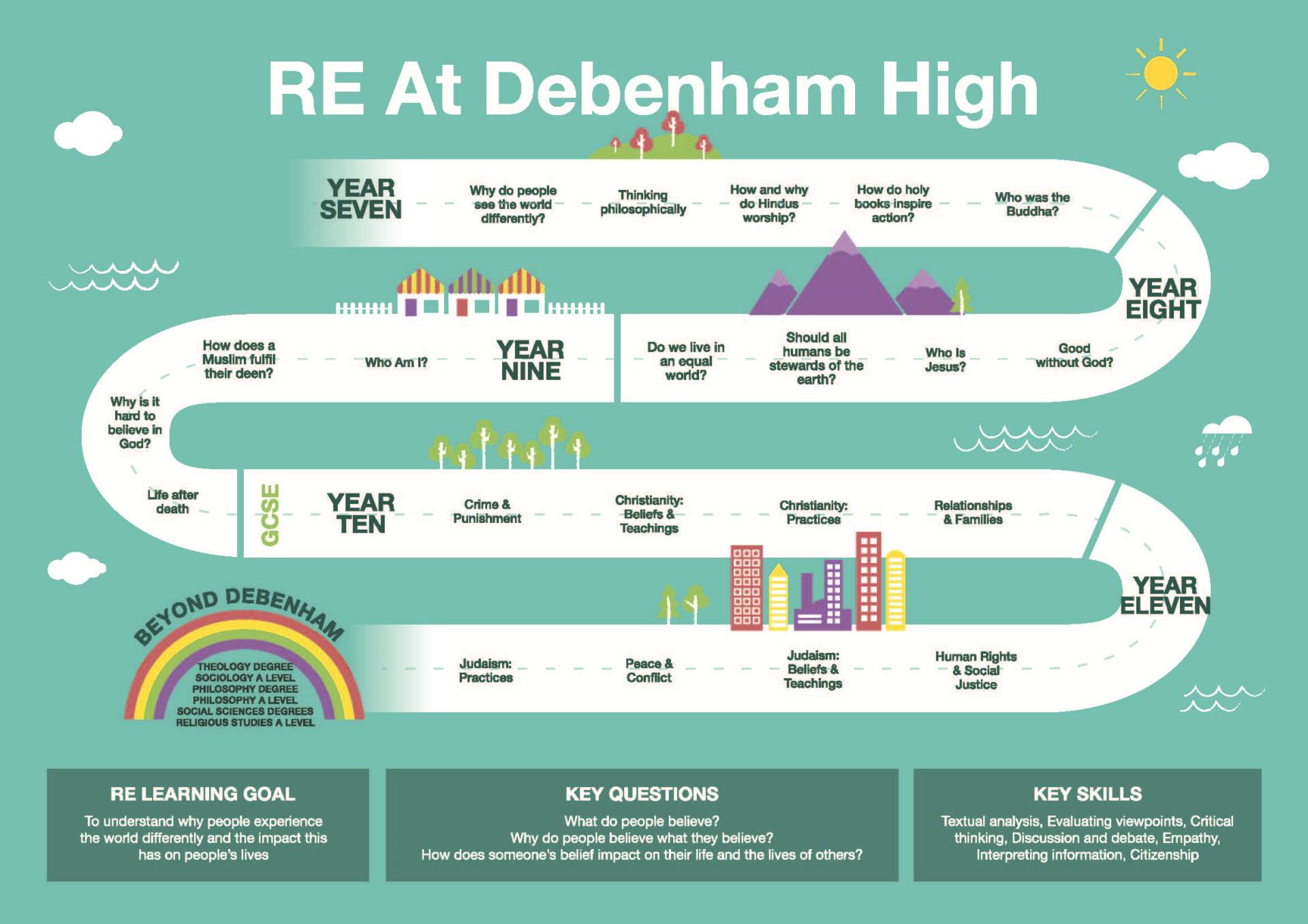Also in this Section
Religious EDUCATION
Exam Board: AQA
Course: GCSE Religious Studies A - Unit 10 Judaism (4050)
Members of Department:
Mr. M. Cobbold, Head of Religious Education
Miss A. Hunter
Mrs L. Ramsay
Mrs J.Jude
Mrs J. Ralfs

VISION
Religious Education (RE) is a key subject in helping our students develop into well-rounded, culturally aware citizens. RE intentionally tackles some of the biggest (and oldest) questions, not just about how different people live their lives, but also about values, identity and the very nature of existence itself. We aim to understand more about the world we live in by considering both religious and non-religious responses to these big questions, as well as our own worldviews. Alongside the academic nature of the subject, RE plays an important role in the Spiritual, Moral, Social & Cultural (SMSC) development of our students
INTRODUCTION
Religious Education (RE) is a key subject in helping our students develop into well-rounded, culturally aware citizens. RE intentionally tackles some of the biggest (and oldest) questions, not just about how different people live their lives, but also about values, identity and the very nature of existence itself. We aim to understand more about the world we live in by considering both religious and non-religious responses to these big questions, as well as our own worldviews. Alongside the academic nature of the subject, RE plays an important role in the Spiritual, Moral, Social & Cultural (SMSC) development of our students.
The RE curriculum at Debenham High School works in accordance with Suffolk Agreed Syllabus and the non-statutory QCA guidelines for effective RE teaching. Students are taught for one 50 minute lesson each week in Years 7 – 9. In Years 10 & 11, all students take Re for GCSE and have three 50 minute lessons per week.
RE aims to:
- Provoke and discuss challenging questions;
- Develop students’ knowledge of Christianity and other religions, as well as non-religious worldviews;
- Develop students’ awareness and understanding of religious belief and practice;
- Encourage students to learn about different religions and traditions;
- Challenge students to reflect on, consider, analyse, interpret and evaluate issues;
- Encourage students to develop a sense of identity, purpose and belonging within their communities;
- Prepare students for adult life;
- Connect learning to topical issues and current world events;
- Encourage students to develop respect and sensitivity towards others.
![]() RE at Debenham - What, Why & How
RE at Debenham - What, Why & How
PROGRAMME OF STUDY
Each subject programme of study will:
- Provide a clear and coherent learning journey
- Foster subject-based understanding of new knowledge, concepts and methods
- Ensure students acquire knowledge and give opportunities for recall and application of this knowledge so that fluency is developed
- Require students to think and reason for themselves
- Explanations and resources enable students to engage with and master learning
- Learning should develop a depth of understanding that brings richness to the subject but also a breadth of understanding that enriches wider life and learning
- Develop a readiness for the next stage: be this the next lesson, the next unit of work, the next year or key stage; it prepares students for both academic, A Level, and future degree study, or vocational learning
- Contain appropriate, regular and robust assessment methods for measuring student progress and to allow intervention where progress is not as expected.
In order to see an overview of the sequence and progression of learning please see their Programme of Study:
Trips and Visits
Year 7 to St. Mary's Church, Debenham
Year 8 to Coventry Cathedral and a Sikh Gurdwara
Year 11 to Norwich Synagogue and Norwich Cathedral
KEY STAGE 3
Across KS3 students are encouraged to develop their knowledge and understanding of a range of religious beliefs. Christianity (as the dominant religion of the UK) is used as a focal point, with specific attention also given to Buddhism, Sikhism and, in Year 9, Islam. There will always be flexibility in order to address and/or respond to current/topical world events. Students are encouraged to consider what people believe, why they believe and how they live out these beliefs. An outline of the topics studied in each year group is as follows:
Year 7
- Why do people see the world differently?
- Why Do Shaivas & Vaishnaivas Worship Differently
- How does Buddhist dhamma change lives?
- How does the Bible inspire Christians to act against injustice?
Year 8
- Can you be moral if you don’t believe in God?
- Is Jesus God Incarnate?
- How does becoming gurmukh create a more equal society?
- Should all humans be stewards of the earth?
Year 9
- Who am I?
- How do Muslims fulfil their deen?
- Life After Death
- Why Is It Hard To Believe In God?
KEY STAGE 4
At KS4, students study the following AQA GCSE specifications. These qualifications encourages students to build on the knowledge and skills developed in KS3.
Year 10 & 11
CORE RELIGIOUS STUDIES FOR ALL
Exam Board: AQA
Course: Specification A (Christianity & Judaism)
Content:
The course is split into two key components, outlined as follows:
|
Component 1: The study of religions: beliefs, teachings and practices |
|
What's assessed
|
|
How it's assessed
|
|
Questions Each religion has a common structure of two five-part questions of 1, 2, 4, 5 and 12 marks. Each religion is marked out of 48. |
|
Component 2: Thematic studies |
|
What's assessed · Relationships and families.
|
|
How it's assessed
|
|
Questions Each theme has a common structure of one five-part question of 1, 2, 4, 5 and 12 marks. Each theme is marked out of 24. |
A more detailed outline of the course content can be found at https://www.aqa.org.uk/subjects/religious-studies/gcse/religious-studies-a-8062











































